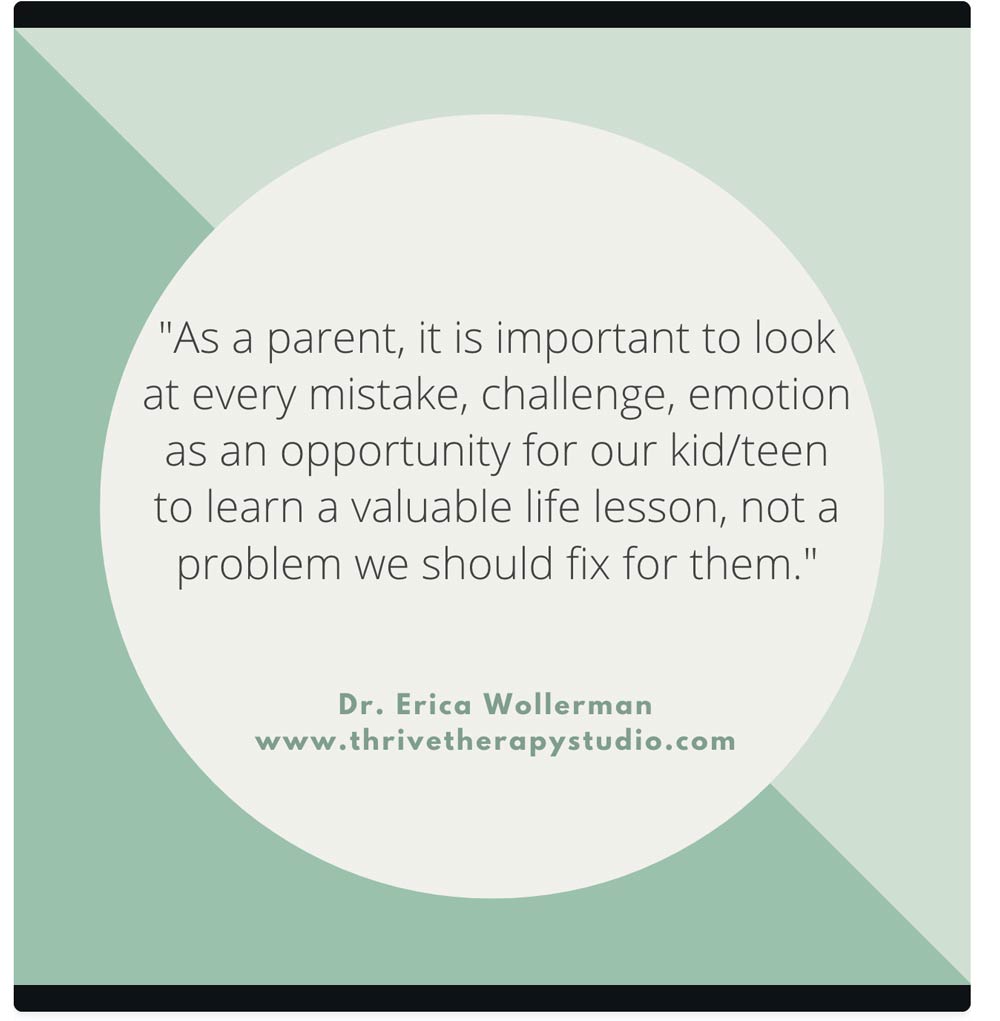One of the most interesting observations that I have about our current generation of teens, is that they seem to be easily frustrated and upset when things do not go the way they would like. While some of this is definitely a part of being a teen, it definitely seems to also be a challenge rooted in growing up in our current culture. While it is ultimately up to the teen to learn how to cope with disappointment more effectively, it is helpful to look at some of the broader reasons why they may experience the world in this way.
One big factor I see impacting frustration tolerance development in our teens is that there are less opportunities for developing those skills in our “instant gratification” and overly tech focused world. When this topic comes up with parents of the teens that I work with, I often talk with parents about all the opportunities that they had to develop their emotional regulation skills to help them cope with disappointment and frustration. Remember when we didn’t have instant access to shows, movies, music, friends, etc. by using smart phones? While technology is definitely helping our world in many ways, a big impact of having so many things easily accessible at our fingertips as children whose brains are still developing, is that we have less opportunity for natural ways to develop frustration tolerance.
Imagine this scenario – your toddler is crying because they want to watch something (Daniel Tiger anyone?). In the dark ages when I was a kid, we had to wait until that show came on, time watching TV at the time of the show, sit through commercials, and tolerate the frustration of not having the ability to have what we want right when we want it. Now, it is so easy to just play the show for them and it feels uncomfortable as a parent to choose not to give your child something without a reason. Additionally, there are usually minimal interruptions, commercials, and even waiting time for your child to get what they are asking for. And as the parent of a toddler myself, it is so tempting to just give them the things they want to avoid a horrible meltdown! While this is just one example, I think it is an important one because it is so common for all of us to use quick fixes to solve our kids’ problems.
Consider the following:
- You forgot your lunch, I’ll “postmates” you some food. (Speaking of Postmates, click here for a link to their San Diego delivery page if you are interested!)
- You forgot to order a gift for someone, I’ll have it to you within the day using amazon
- You want to hear that song, let me buy it on iTunes now
It is just SO easy to access so much at our fingertips now. And as a parent it is easy to look at these examples as small examples but they all add up. Every quick fix for a kids’ upset feelings, disappointment, forgetfulness, adds up to a kid who is going to struggle more with managing those feelings and tasks in the future. As a parent, it is important to look at every mistake, challenge, emotion as an opportunity for our kid/teen to learn a valuable life lesson. Since problems are generally easier to solve in our world, we have to most likely create situations where we may even choose NOT to solve a problem, just so that our child can learn to tolerate the frustration of not getting something instantly.
Another element to consider in this discussion is that parents are very focused on their children. While this is a great thing in terms of parent-child relationships and development, it can at times lead parents to “over solve” problems rather than to scaffold their child’s ability to solve the problem themselves. Scaffolding is a crucial part of teaching that applies to parenting and just means that when our child is not able to do something yet, we don’t dive in and just take over the task, we let them struggle with it first and then intervene just enough so that they can figure it out on their own. Pretty much, you want to help the least amount possible, rather than take over and accidentally do it for them. This allows children to understand the feeling of productive struggle that leads to solutions and progress. If we as parents are uncomfortable with struggle, we are likely to dive in too early and rescue them which avoids a child’s distress but also their learning about how to manage distress, frustration, and how to persevere when challenged.
If you would like to talk more about parenting your teen with a Thrive therapist, contact us today! We love talking about how to support teens and families develop more frustration tolerance and grit!
Reach out to start
your healing journey



